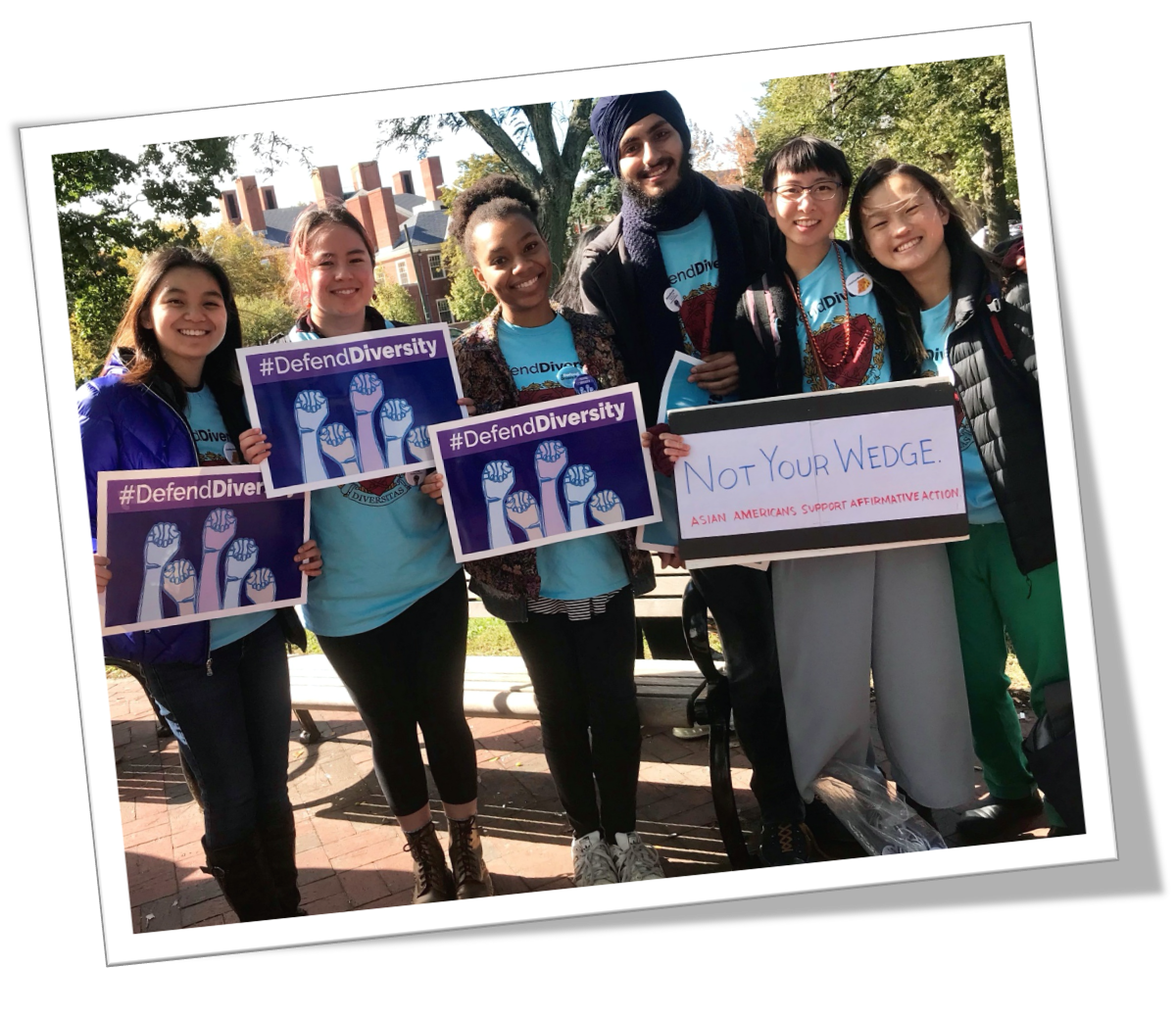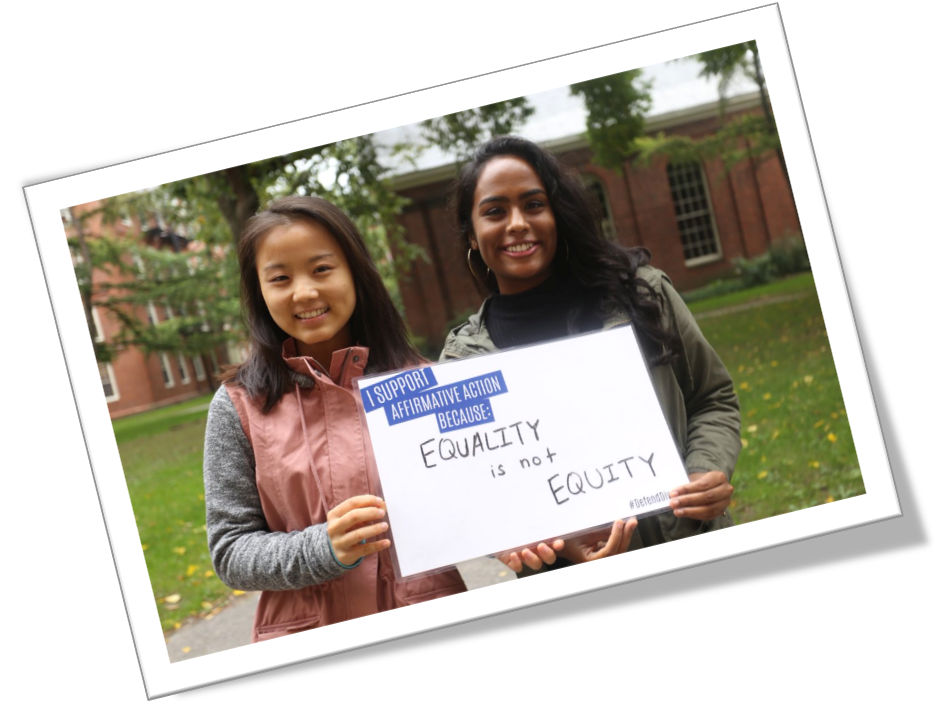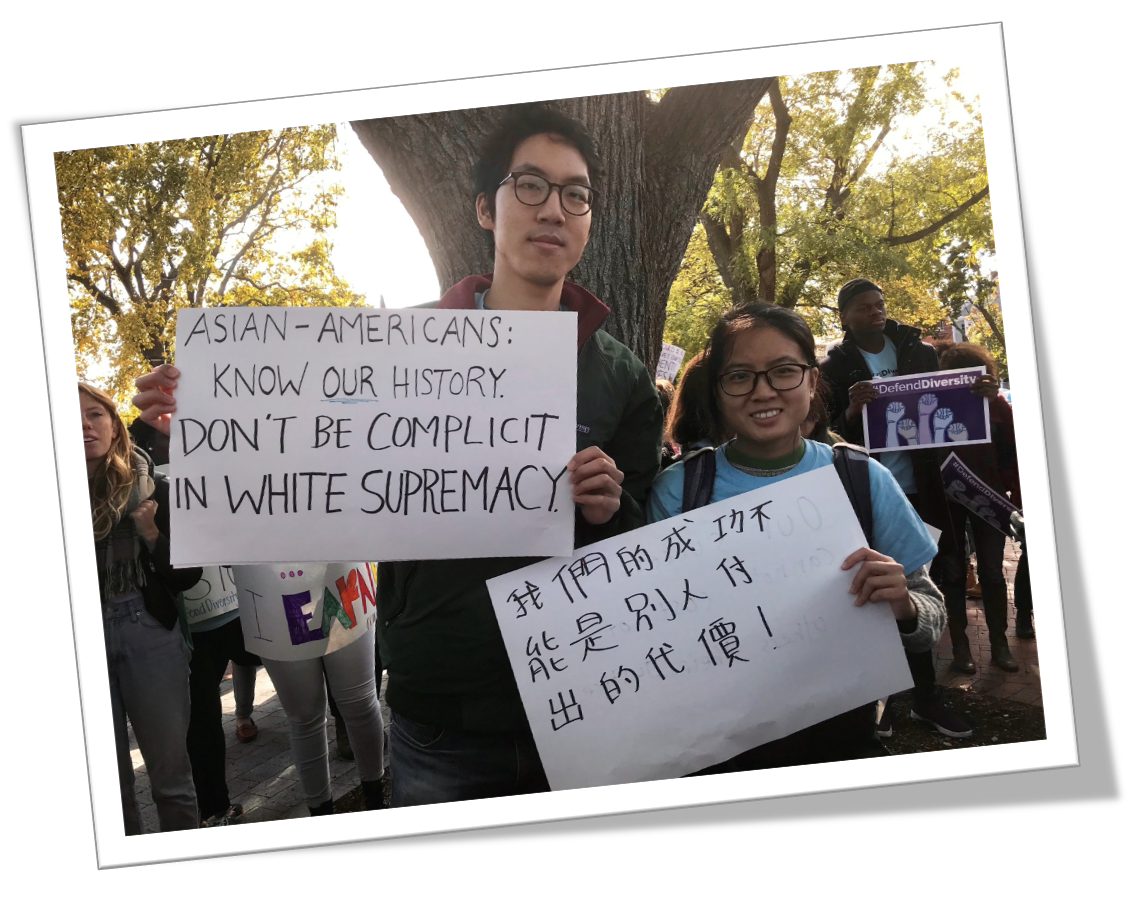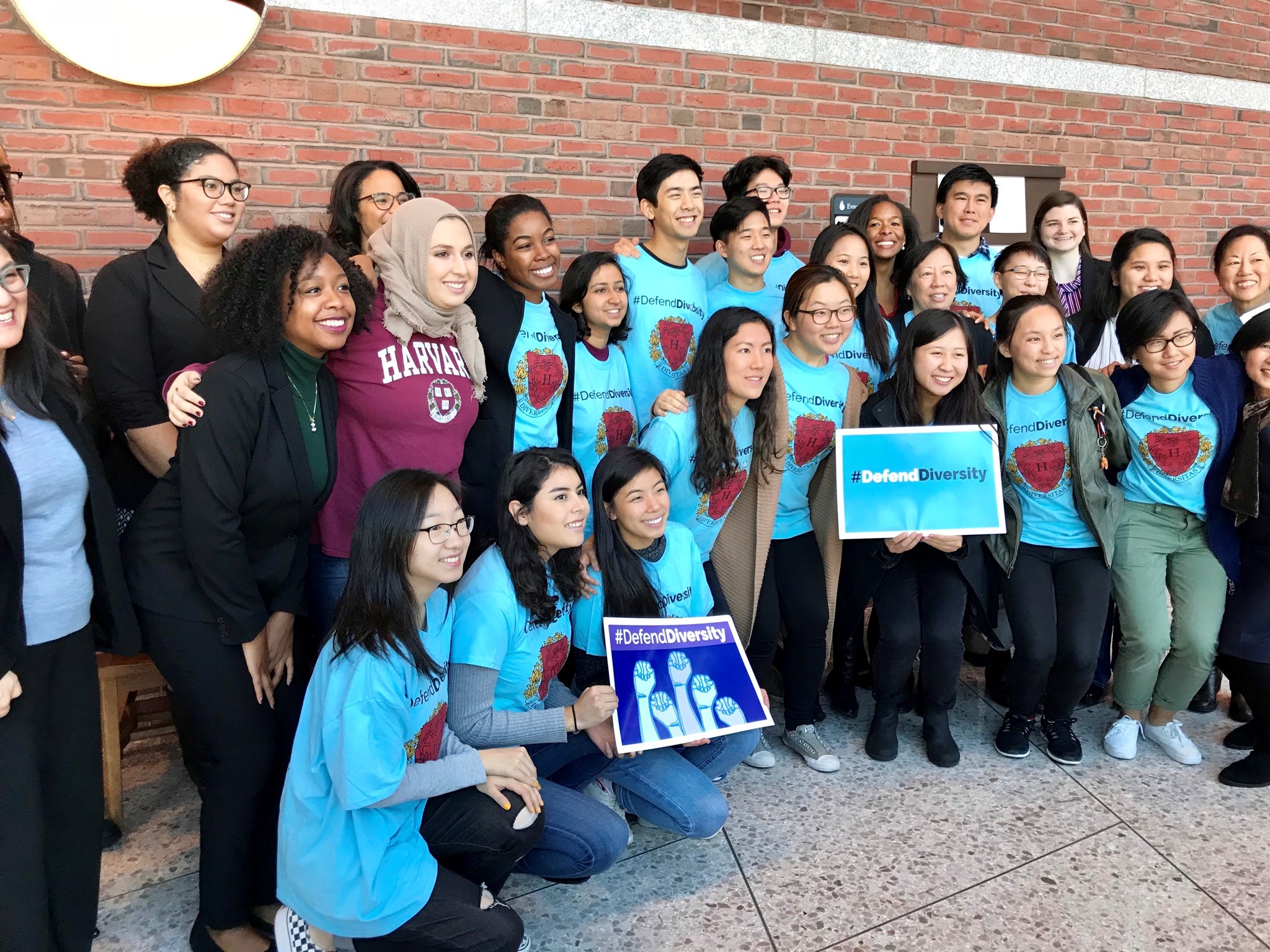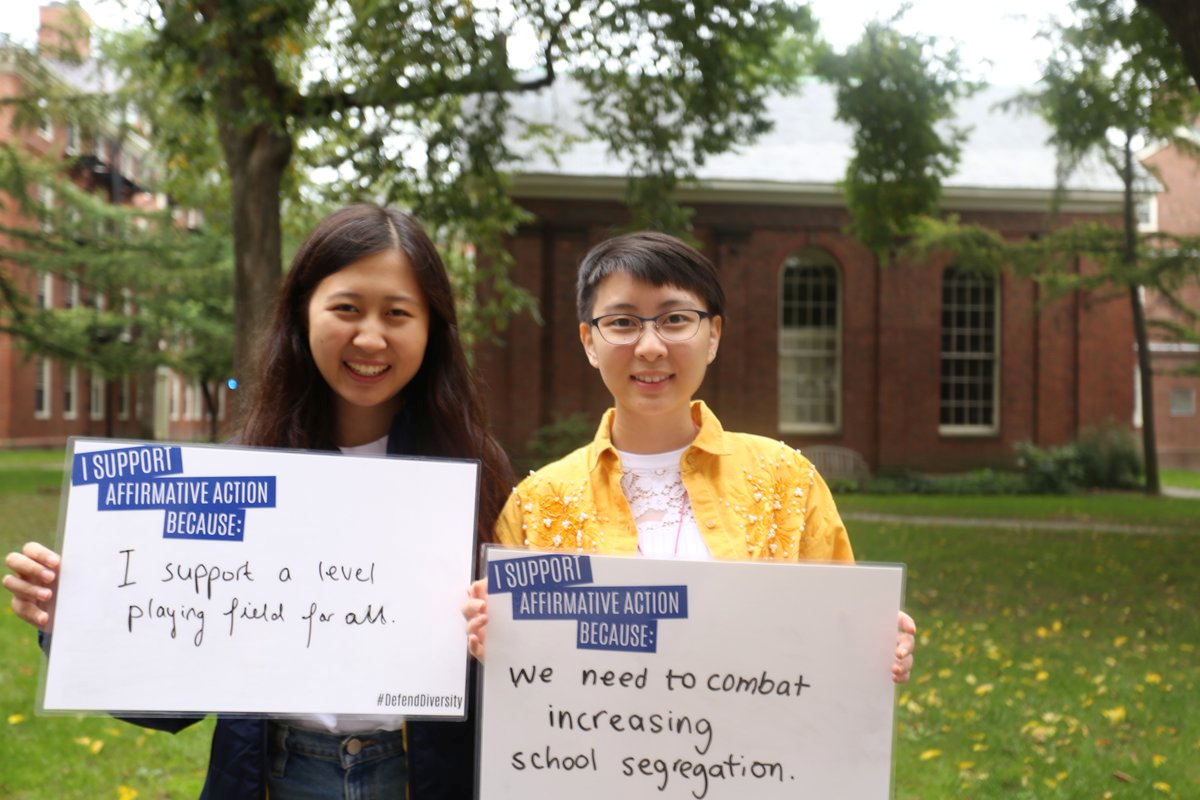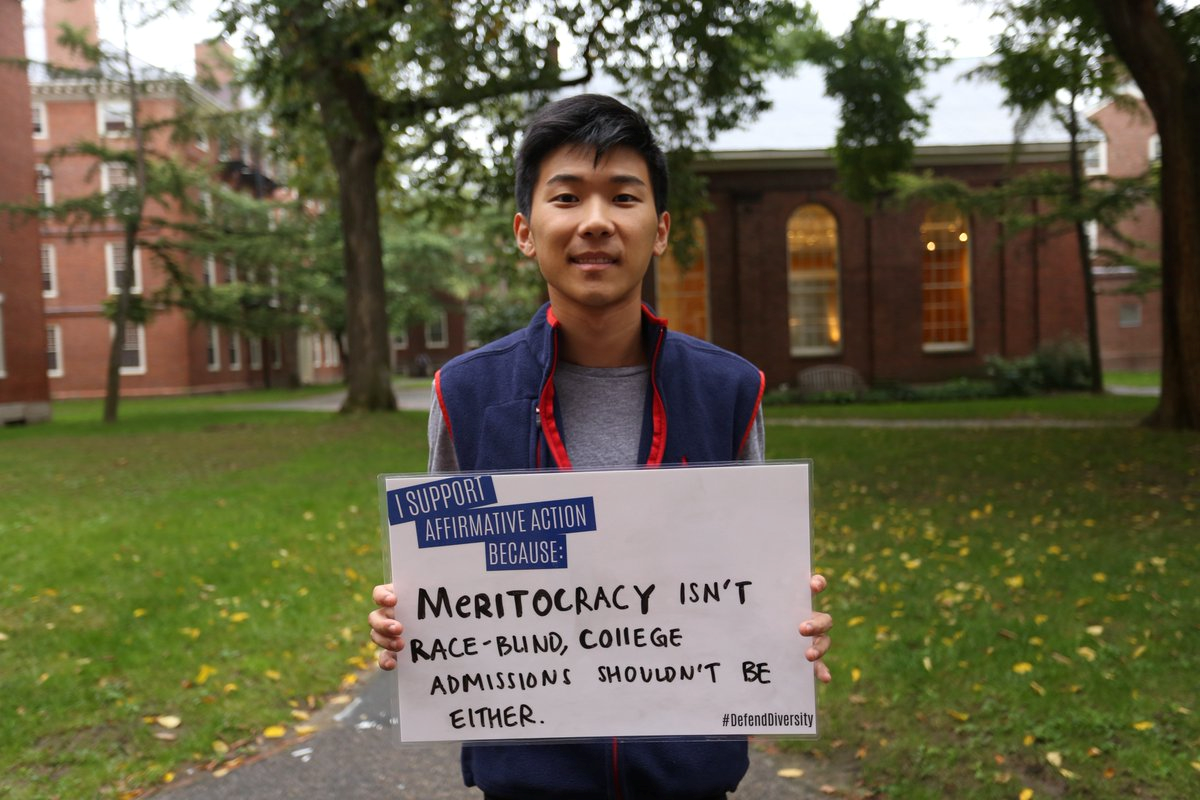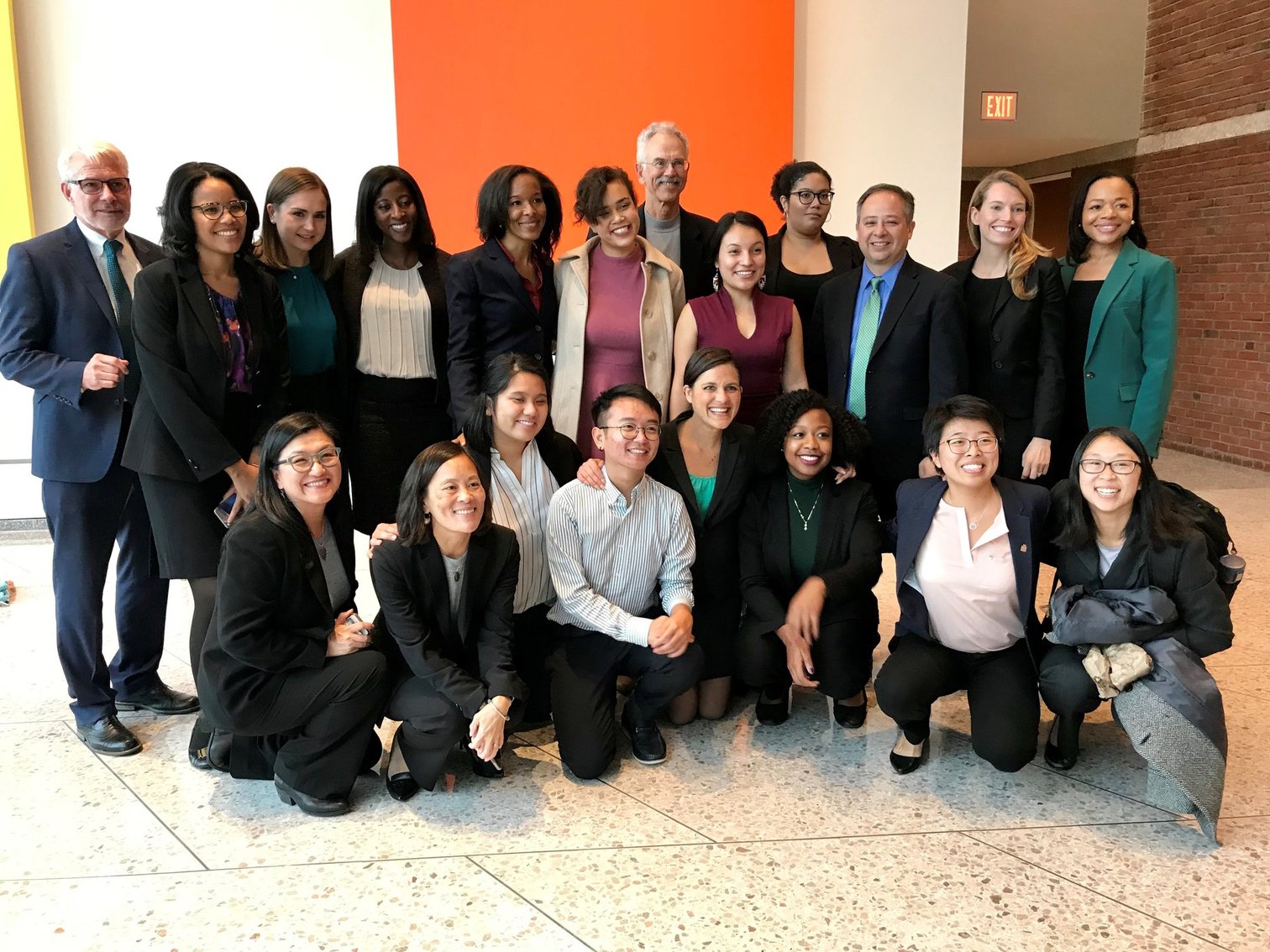Students for Fair Admissions (SFFA) v. Harvard
Case Summary
SFFA v. Harvard College is a lawsuit spearheaded by anti-affirmative action activist Edward Blum that seeks to eradicate over 40 years of established legal precedent, which allows colleges to consider the race of highly-qualified applicants in admissions to promote the benefits of diverse learning environments. Students for Fair Admissions (“SFFA”), the named organizational plaintiff created by Blum, claims Harvard’s race-conscious admissions policy unlawfully discriminates against Asian-American applicants in violation of Title VI of the Civil Rights Act of 1964. SFFA seeks to ban Harvard and other colleges from considering—or even knowing—the race of its applicants.
Since 2015, the Lawyers’ Committee and its partners have represented a multi-racial, multi-ethnic group of Harvard students who are defending a university’s right to consider race to promote diversity and inclusion (“Students”). The district court granted the Students special “amicus-plus” status, which afforded them the opportunity to present witnesses at trial along with opening and closing arguments. Their “amicus-plus” status also permitted Students to file extended briefs on dispositive motions and submit student declarations and post-trial findings.
Harvard and the Lawyers’ Committee prevailed on each of SFFA’s six counts listed in the Complaint. The District Court dismissed two counts before trial: that Harvard was prohibited from considering race in any manner in admissions and that Harvard was prohibited from considering race beyond the “last few” admissions decisions. The decision resolved the remaining counts, holding that Harvard did not intentionally discriminate against Asian Americans through any aspect of its admissions policy; Harvard did not engage in racial balancing; and Harvard’s policy was narrowly targeted and necessary to harness the benefits of a diverse student body.
Of note, the district court’s opinion repeatedly cited Students’ testimony to conclusively find racial diversity produces vital benefits at Harvard, and racial identity is critical for fairly evaluating highly-talented students of all backgrounds.
Immediately following this favorable decision, SFFA filed an appeal in the First Circuit. The parties and amici submitted briefs over the course of Spring 2020. Oral argument before the First Circuit took place on September 16, 2020. The Lawyers’ Committee participated in oral argument on behalf of student-amici.
The Lawyers’ Committee represents the Students with co-counsel from Asian Americans Advancing Justice Center (AAJC), Boston’s Lawyers’ For Civil Rights, and Arnold & Porter.
Case Timeline
September 16, 2020: Oral argument before the First Circuit. The Lawyers’ Committee participated in oral argument on behalf of the diverse group of prospective, current, and former Harvard students defending a university’s right to consider race in admissions to promote diversity and equal opportunity (Student-amici).
May 14, 2020: Harvard files its response appellate brief with the First Circuit.
February 18, 2020: SFFA files its opening appellate brief with the First Circuit.
October 2019: SFFA appeals the decision upholding Harvard’s race-conscious policy to the First Circuit Court of Appeals. The First Circuit issued a scheduling order for the parties and amici to submit briefs over Spring 2020.
September 30, 2019: Judge Burroughs upholds Harvard’s race-conscious policy on all counts. In so doing, Judge Burroughs cites repeatedly to Students’ testimony to establish the profound benefits of diversity and the continued importance of viewing race as one factor among many to admit a class that is both highly-talented and diverse across all characteristics. Judge Burrough’s decision is available here. The Lawyers’ Committee’s press release is available here.
February 2019: The Students’ counsel delivered post-trial arguments. The Students’ closing argument is available here, along with the closing slide-deck here.
January 2019: The Students’ filed a post-trial brief in the United States District Court of Massachusetts opposing liability in the lawsuit challenging Harvard’s race-conscious holistic admissions policy. The Students’ brief is available here.
October 2018: Trial held before Judge Burroughs in Boston’s federal district court. The Students presented opening argument, closing argument, and offered the testimony of four witnesses. The transcript for the day of Students’ testimony is available here. The opening argument on behalf of Students is available here.
April 2018: The Students submitted a letter to the Court and participated in the hearing, discussing the treatment of confidential information at the summary judgment stage. The Students’ letter is available here.
December 2016: Additional Asian American students represented by Asian Americans Advancing Justice (AAAJ) joins Students as amici defending Harvard’s race-conscious admissions policy. AAAJ’s press release and motion are available here.
October 2015: Students submit an amici brief in support of Harvard’s Motion to Dismiss. Students’ motion is available here.
April 2015: The Lawyers’ Committee and co-counsel moved to intervene on behalf of current and prospective underrepresented minority students at Harvard. The district court denied full intervention but granted the students enhanced “amicus plus” status, permitting them to: submit briefs on dispositive motions; participate in any oral argument on dispositive motions; submit personal declarations and affidavits in support of race-conscious admissions; and, should the case proceed to trial, file a motion to participate in trial proceedings. The Students’ Motion to Intervene is available here and the Court’s Order on Intervention is available here. Link to mtn to intervene brief (doc 30)
November 17, 2014: Students for Fair Admissions (SFFA) files a lawsuit claiming Harvard’s race-conscious admissions policy unlawfully discriminates against Asian-American applicants in violation of Title VI of the Civil Rights Act of 1964, 42 U.S.C. 2000d et seq. Harvard, like most private and public universities, considers race as one factor among many when deciding who to admit — an effort to expand opportunities for minority students who have long been under-represented in higher education.
Key Documents
- Original Complaint (November 17, 2014)
- Brief in support of Students’ Motion to Intervene (April 29, 2015)
- Judge’s Order, granting “amicus plus” status (June 15, 2015)
- Students’ letter supporting sealing of documents to protect student privacy (April 9, 2018)
- Harvard’s brief in support of summary judgment (June 15, 2018)
- SFFA’s brief in support of summary judgment (June 15, 2018)
- Students’ brief in support of Harvard’s motion for summary judgment (July 30, 2018)
- Students’ declarations in support of Harvard’s motion for summary judgment (July 30, 2018)
- Harvard’s Opposition to SFFA’s motion for summary judgment (July 27, 2018)
- SFFA’s Opposition to SFFA’s motion for summary judgment (July 30, 2018)
- Students’ brief in opposition to SFFA’s motion for summary judgment (August 30, 2018)
- Students’ Motion to Participate in Trial (August 31, 2018)
- SFFA’s Response to Students’ Motion to Participate in Trial (September 14, 2018)
- Students’ Reply in Support of Motion to Participate in Trial (September 26, 2018)
- Order on Cross-motions for Summary Judgment (September 28, 2018)
- Harvard’s Post-Trial Proposed Findings of Fact and Conclusions of Law (December 19, 2018)
- SFFA’s Proposed Post-Trial Proposed Findings of Fact and Conclusions of Law (December 19, 2018)
- Students’ Post-Trial Proposed Findings of Fact and Conclusions of Law (January 9, 2019)
- SFFA’s Response to Harvard’s Proposed Findings of Fact and Conclusions of Law (January 23, 2019)
- Harvard’s Response to SFFA’s Proposed Findings of Facts and Conclusions of Law (January 23, 2019)
- District Court’s Decision Upholding Harvard’s Race-Conscious Policy (September 30, 2019)
Other Documents of Interest
- Students’ Opening Argument (October 15, 2018)
- Day of Student Trial Testimony (October 29, 2018)
- Students’ Closing Argument (February 13, 2019)
- Students’ Closing Presentation (February 13, 2019)
- Blog Post: The Historic Fight for Affirmative Action is Far From Over (February 15, 2019)
Press Releases
- September 16, 2020: U.S. Court of Appeals Hears Arguments in SFFA v. Harvard Case
- September 16, 2020: If Harvard’s Race-Conscious Admissions Policy Isn’t Upheld, Groups May be Headed to U.S. Supreme Court
- October 1, 2019: Federal Court Upholds Harvard’s Race Conscious Admissions
- February 13, 2019: Lawyers’ Committee for Civil Rights Under Law to Deliver Closing Arguments in SFFA v. Harvard
- October 29, 2018: Harvard Students Provide Testimony in SFFA v. Harvard, Defend Race-Conscious Holistic Admissions
- August 30, 2018: Lawyers’ Committee for Civil Rights Under Law Responds to DOJ’s Attack on Racial Diversity in Harvard Case
- July 30, 2018: Civil Rights Groups File Brief in Support of Race Conscious Admissions at Harvard
- October 31, 2017: Lawyers’ Committee for Civil Rights Under Law Takes New Action to Defend Interests of Asian American Minority Students in Harvard Affirmative Action Lawsuit
Media
- The Wall Street Journal: Harvard Students, Alumni Defend Value of Diversity on Campus
- Bloomberg: Defending Harvard in Asian-American Bias Case: Asian-Americans
- The Harvard Crimson: ‘An Act of Erasure’: Harvard Students Argue Against Race-Blind Admissions In Court
- CNN: The Asian-American case against Harvard: What to watch for
- CNN: Harvard students to testify as affirmative action trial nears end
- New York Times: Harvard Won a Key Affirmative Action Battle. But the War’s Not Over
Student Voice
Sally Chen
- “I’m An Asian-American Harvard Student — Here’s Why I Testified In Support Of Affirmative Action”
- “Defending Diversity on Campus”
Thang Diep
Jang Lee
Daniel Lu
Itzel Vasquez-Rodriguez

